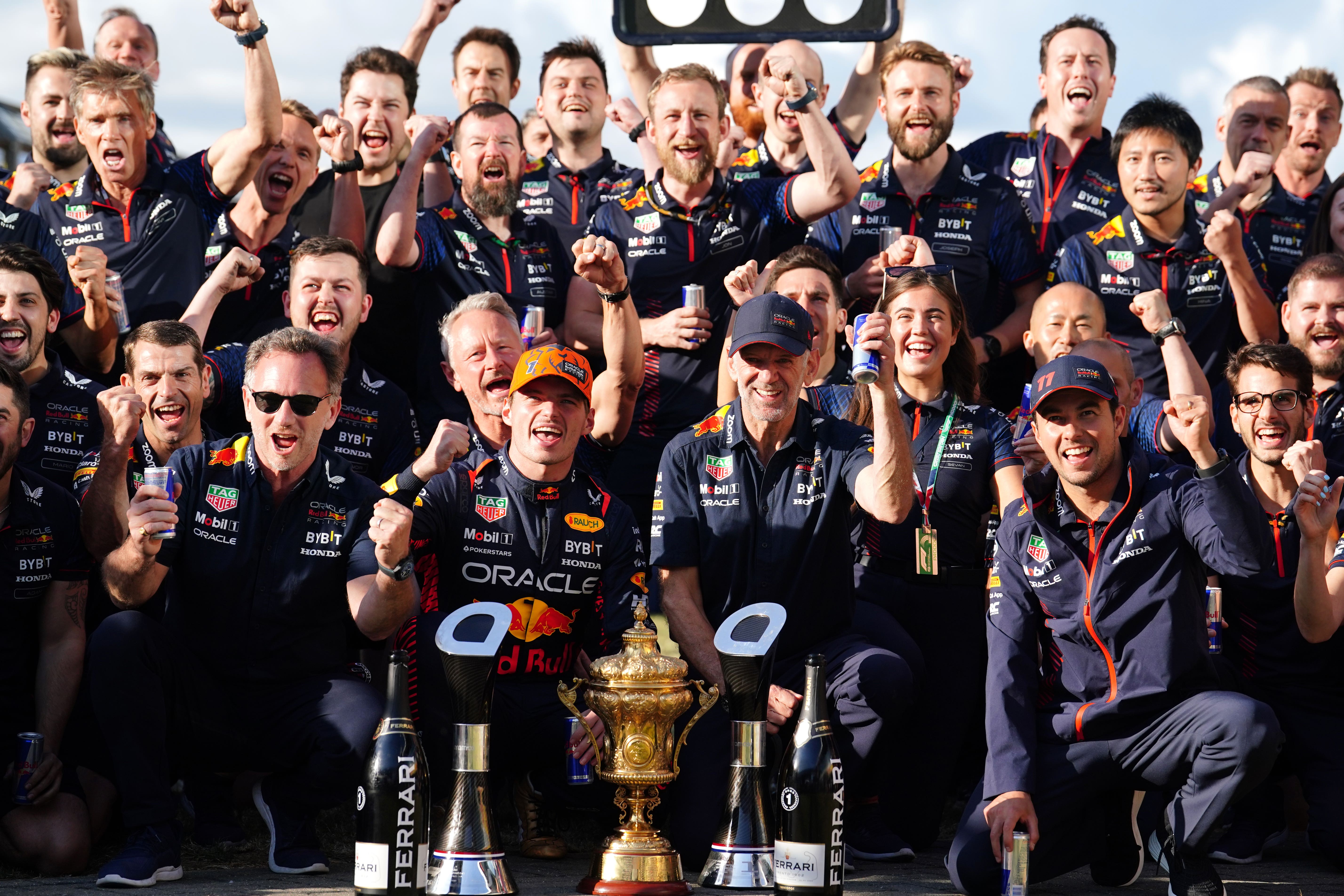How does Max Verstappen and Red Bull compare to the greats of Formula One?
Verstappen has won eight of this season’s 10 races, with team-mate Sergio Perez taking the other two.

Your support helps us to tell the story
From reproductive rights to climate change to Big Tech, The Independent is on the ground when the story is developing. Whether it's investigating the financials of Elon Musk's pro-Trump PAC or producing our latest documentary, 'The A Word', which shines a light on the American women fighting for reproductive rights, we know how important it is to parse out the facts from the messaging.
At such a critical moment in US history, we need reporters on the ground. Your donation allows us to keep sending journalists to speak to both sides of the story.
The Independent is trusted by Americans across the entire political spectrum. And unlike many other quality news outlets, we choose not to lock Americans out of our reporting and analysis with paywalls. We believe quality journalism should be available to everyone, paid for by those who can afford it.
Your support makes all the difference.Red Bull equalled a Formula One record in Sunday’s British Grand Prix with their 11th consecutive win as Max Verstappen closes in on a landmark of his own.
Here, the PA news agency looks at how the dominant Dutchman and his team compare to the greats of the grid.
Channelling Prost and Senna
Verstappen has won eight of this season’s 10 races, with team-mate Sergio Perez taking the other two.
Verstappen also won last season’s final race and not since the great McLaren pairing of Ayrton Senna and Alain Prost has a single team dominated to such an extent.
The 1988 season began in Brazil and while Senna was disqualified from his home race for an illegal car change, Prost took the chequered flag.
Senna won in San Marino and he and Prost shared the next four races equally before Prost recorded a home win in the French Grand Prix.
Four straight wins for Senna followed before Ferrari’s Gerhard Berger broke the streak in Italy, the only race all season not won by McLaren as they and Senna won a championship double with Prost close behind in second in the drivers’ standings.
That is the case for Verstappen and Perez this season as well, albeit with Verstappen almost 100 points clear of his team-mate.
Verstappen added Bahrain and Australia to last season’s success in Abu Dhabi, alternating at the start of the season with Perez’s wins in Saudi Arabia and Azerbaijan before taking sole control.
Mercedes had three separate runs of 10 successive wins during Lewis Hamilton’s period of dominance, with Michael Schumacher’s Ferrari team also hitting double figures in 2002.
Six of the best
Since the start of May, Verstappen has won the Miami, Monaco, Spanish, Canadian, Austrian and now British Grands Prix to match Schumacher’s run of six straight wins across the 2000 and 2001 seasons.
He already sits joint fifth on the all-time list and has the chance to quickly climb the rankings further.
Of the four names ahead of him on the list, three saw their streak end at seven wins in a row – meaning victory in Hungary later this month would leave only Sebastian Vettel’s record of nine straight wins in 2013 for Verstappen to chase.
Alberto Ascari has a claim to matching that record. The Italian won the last six races of the 1952 season and the Argentine Grand Prix at the start of 1953 before not entering the Indianapolis 500, which at the time was part of the drivers’ championship. He went on to win the Dutch and Belgian GPs on his next two starts.
Schumacher won seven in a row in 2004, as did Nico Rosberg at the end of 2015 and the start of his 2016 title-winning season.
Verstappen’s win on Sunday took him clear of Hamilton’s longest run of five wins, set in both 2014 and 2020, and his own previous best from last season.
With eight wins out of 10, his current 80 per cent win rate would be the highest ever if he can sustain it all season – beating Ascari’s 75 per cent in 1952, when there were only eight races in total – and the first over 70 per cent since Schumacher in 2004.